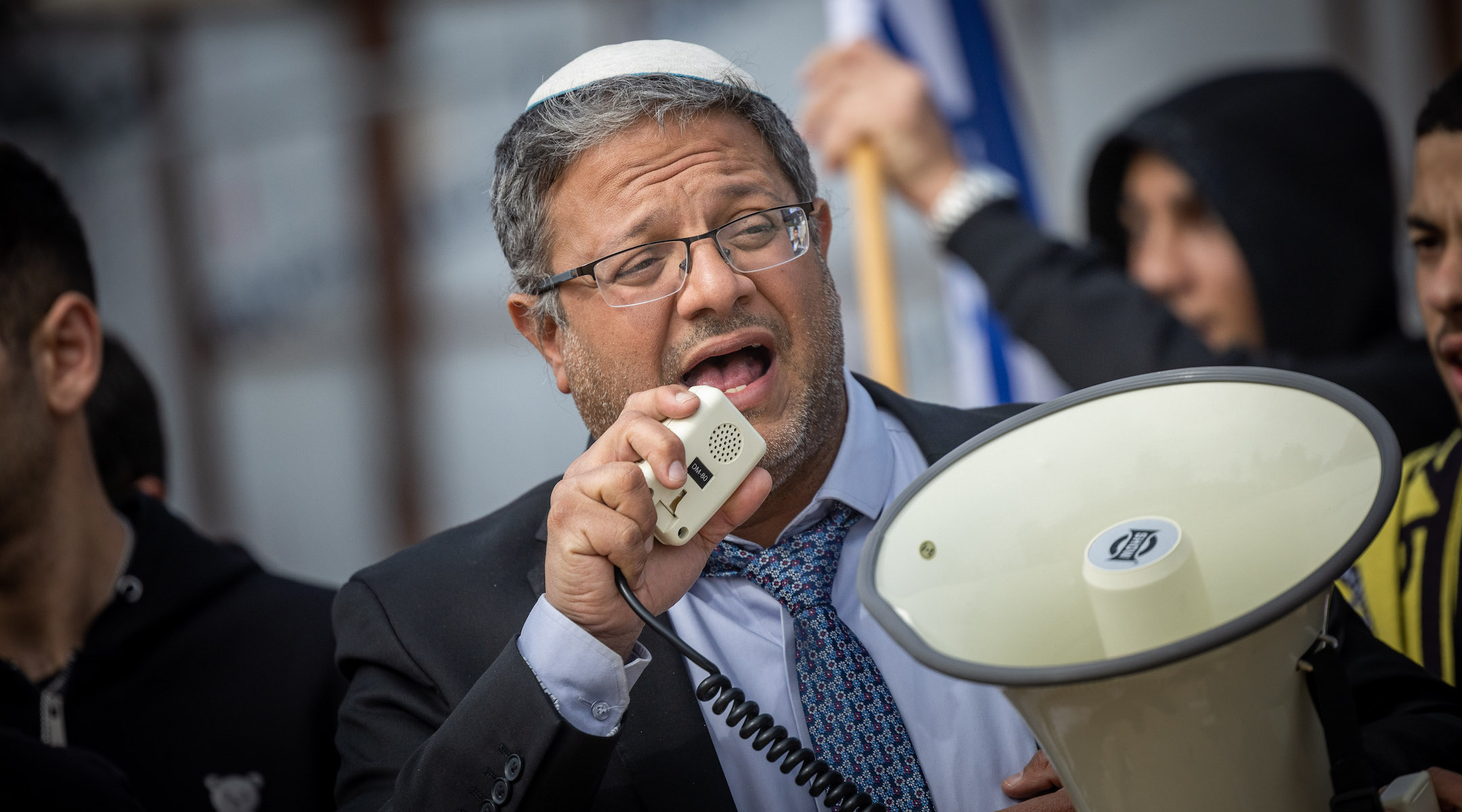WASHINGTON ((JEWISH REVIEW)) — The Biden administration said a visit to Jerusalem’s Temple Mount by Itamar Ben-Gvir, Israel’s far-right national security minister, was “provocative” and cautioned against changes at the contested holy site.
Ben-Gvir visited the Temple Mount, which Muslims revere as the Noble Sanctuary, on Sunday morning, and declared that Israel was “in charge” of the sensitive site. The visit came days after Thursday’s annual “Flag March” through Jerusalem’s Old City, a right-wing parade that celebrates Jerusalem Day and perennially features racist chants and street violence.
Israel captured the Temple Mount, along with the rest of Jerusalem’s eastern district, from Jordan in the 1967 Six Day War, and left it in control of the Islamic Wakf, an authority that controls Muslim religious access to the site and answers to Jordan. In the decades since, Jews have been allowed to enter the site during limited hours but may not pray or worship there in an obvious manner.
A group of right-wing activists has long pushed for Jews to be able to pray freely on the mount, considered the holiest in Judaism. Disputes over the site have previously led to bloodshed and precipitated broader conflict in the region.
Following Ben Gvir’s visit, Matthew Miller, the State Department spokesman, said in a statement that the Biden administration was “concerned by today’s provocative visit to the Temple Mount/Haram al Sharif in Jerusalem and the accompanying inflammatory rhetoric.”
“This holy space should not be used for political purposes, and we call on all parties to respect its sanctity,” Miller said. “More broadly, we reaffirm the longstanding U.S. position in support of the historic status quo at Jerusalem’s holy sites and underline Jordan’s special role as custodian of Muslim holy sites in Jerusalem.”
The Biden administration has recently made preserving the status quo at the site a focus of its diplomacy. The State Department’s annual report on religious freedoms stressed the importance of keeping the peace on the Temple Mount, and the U.S. ambassador for international religious freedoms, Rashad Hussain, mentioned the Temple Mount in his remarks on the report.
“On my trip to Jerusalem and the West Bank last month, I joined services at al-Aksa Mosque, attended the Holy Fire Ceremony at the Church of the Holy Sepulchre, and visited the Western Wall during the convergence of Ramadan, Orthodox Easter and Passover,” Hussain said. “I sat down with government leaders as well as leaders of the Christian, Jewish and Muslim communities to discuss the importance of religious coexistence and protecting access to these religious sites.”
Miller’s statement also said the Biden Administration was “deeply troubled” by an Israeli decision on Sunday to allow the return of settlers to a segment of the northern West Bank evacuated in 2005 along with settlements in the Gaza Strip. Israel’s agreement to the evacuations at the time were seen as a quid pro quo for the George W. Bush administration’s acquiescence to the permanent presence of Jewish settlements elsewhere in the West Bank. The Biden administration rebuked Israel two months ago for passing legislation that paved the way toward Sunday’s decision.
“This order is inconsistent with both former Prime Minister [Ariel] Sharon’s written commitment to the Bush Administration in 2004 and the current Israeli government’s commitments to the Biden Administration,” Miller said. “Advancing Israeli settlements in the West Bank is an obstacle to the achievement of a two-state solution.”
Israeli Prime Minister Benjamin Netanyahu is leading a government with far-right partners in senior roles, including Ben-Gvir, which has been a sticking point with the Biden administration. President Joe Biden has rejected appeals by Netanyahu to invite him to Washington for a White House visit in part because of the actions and rhetoric of Ben-Gvir and others in the far-right bloc.



